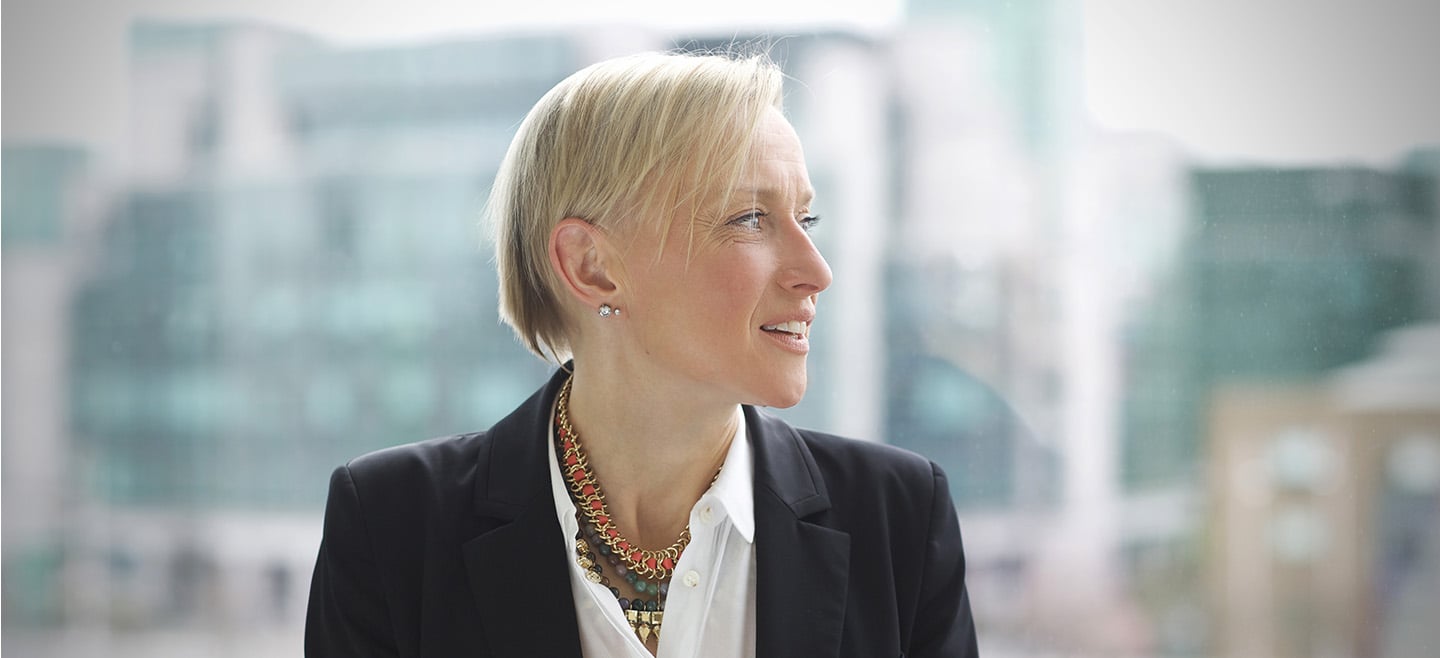Sign up for expert insights, industry trends, and key updates—delivered straight to you.
New Chartered Accountants Ireland president Sinead Donovan vows to bridge gap to Next Generation accountants
- ‘Next Gen must be able to see themselves in our profession’ – Donovan
- Demand for improved work-life balance remains and needs to be tackled – Donovan
- New President takes office 37 years after late father, Cecil Donovan assumed same position
The newly elected President of Chartered Accountants Ireland has today highlighted the significant perception gap that exists among Gen Z considering accountancy as a career path. Sinead Donovan, Chair of Grant Thornton Ireland and Partner in its Financial Accounting and Advisory Services practice has made positioning the profession to attract the next generation the key objective of her one-year term.
The AGM of Chartered Accountants Ireland, the longest-established professional accountancy body on the island of Ireland took place in Dublin today. The new President takes office 37 years after her late father, Cecil Donovan and the Institute now has over 31,700 members in over 100 countries, and 7,000 students.
Donovan cited new Chartered Accountant Ireland research, conducted under the auspices of Chartered Accountants Worldwide among Gen Z respondents in Ireland and around the world, to emphasise this perception gap among Gen Z. The study aimed to find out how the qualification is perceived by this cohort, in the context of skills shortages affecting the accounting profession, and many other professions globally.
The survey results showed a significant perception gap between those surveyed who had no experience /engagement with chartered accountancy, compared to those who had commenced their training.
Respondents from Ireland reported seeing chartered accountancy as challenging (56%), numbers-based (34%) and boring (19%). They were considerably less likely than the global average to view the profession as purpose-led (2%), creative (0%) or exciting (4%). Encouragingly however, once they started their chartered accountancy training, Irish respondents were far more likely to view it as varied (increased from 8% to 25%) and purpose-led, and those describing it as “boring” halved.
Donovan noted,
“It’s clear that once students commence their training, they get a much better sense of what the qualification is about, but for those who haven’t made the decision yet, the perception gap is pretty stark. Irish students recorded a significant difference in perception, which shows us there is work to do. Engaging the next generation of accountants and the next generation of leaders will be front of mind for the Institute this year.”
Routes into the profession
There are more routes into the profession today than ever before, but Donovan reflected on what now needs to be done to promote the qualification to the next generation, including changing the established and accepted ways of doing things.
She said,
“If the next generation does not buy into what we do and see itself in our profession, it will be because we are not adequately selling it to them, whether at school or third level, or in the early stages of their professional training. I want to ensure that students understand what ACA is and what the benefits of entering the profession are.
Gone are the days of calculators and ledgers – our focus now is on technology; data analytics; leadership skills and global developments. Being an Irish Chartered Accountant is respected around the globe and the qualification enables truly global travel and ability to do business."
“There has been a lot of attention in public discourse about the need to step up post pandemic and help students and new recruits adapt to the working environment. I firmly believe there is also a need for us to re-examine that status quo and use this opportunity to ensure the environment is one that works for the next generation of the profession too.
Those at the start of their careers are seeking a greater degree of flexibility and better work-life balance. Our profession is in the middle of a recruitment and retention challenge and if we don’t step up to harness this talent pool, we are missing out.”
